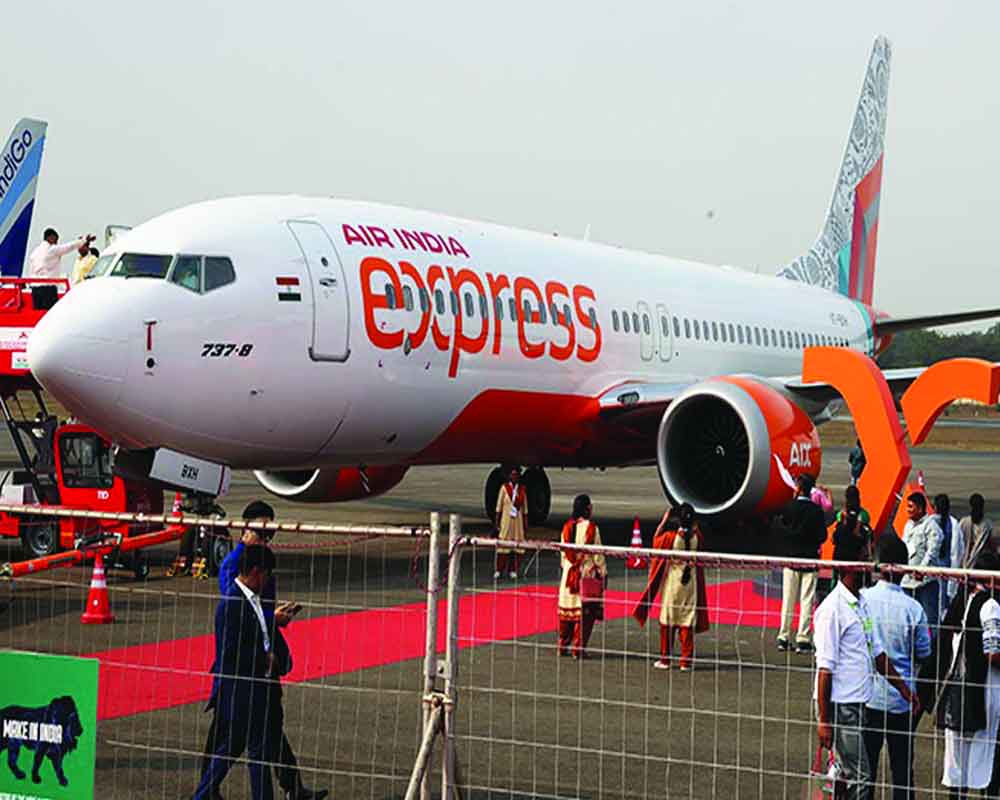Air India Express cabin crew’s moody ‘sick leave’ hits operations, leaves fliers high and dry
In the realm of air travel, few situations are as frustrating as flight cancellations. The anticipation of reaching a destination is replaced by uncertainty and inconvenience. Such was the case recently when Air India Express, the low-cost subsidiary of Air India, found itself in a crisis, leading to a wave of flight cancellations. The flag carrier of India has long been grappling with financial woes and operational challenges. Despite various restructuring efforts, the airline has struggled to stay afloat in a fiercely competitive industry. The latest crisis began when over 300 senior cabin crew members of Express flights reported sick at the last minute, resulting in the cancellation of more than 90 flights since Tuesday night, leaving airports in disarray and passengers seething with frustration. Of course, Air India has now lent a helping hand to its subsidiary, deciding to operate 20 flights against 74 Express cancellations on Thursday, and sacking 30 crew members over “sick leave”. The root cause of this crisis stems from longstanding grievances articulated by Air India Express Employees Union (AIXEU). They have voiced concerns about unfair treatment, citing instances where internal job postings were filled with external candidates, bypassing qualified internal staff. The owners, on their part, do not recognise AIXEU. The Regional Labour Commissioner in New Delhi has also criticised the management for alleged violations of labour laws, highlighting a lack of responsible decision-making. Adding to the turbulence is Air India’s ongoing financial struggles and operational challenges.
Air India Express, despite its parent company’s losses, remained profitable. In 2021, it was sold to the Tata Group, which merged it with AirAsia India. It aimed to capture the budget aviation market with a focus on non-trunk routes and ancillary services. It is the only profitable airline with the Tatas. In 2023, the airline made a profit of Rs 116.84 crore, while the other airlines in the Tata Group’s aviation stable — AirAsia India, Vistara and Air India — incurred a combined loss of Rs 15,530 crores. The fallout from these cancellations has been significant, with passengers expressing their frustration on social media platforms. Long queues, missed connections and inadequate communication have characterised the scenes at airports. In response, Air India Express has issued apologies and promises of improved services, but the damage to passenger trust has been done. The Indian aviation sector has huge potential but the issues of mismanagement are galore. The Govt must proactively ensure that the fliers are not taken for a ride and the airlines also do not incur losses. Besides, the pandemic years were very traumatic for the industry and it is slowly recovering. The Govt must resolve the crisis before it snowballs into a crisis and takes down the whole sector. Looking ahead, the fate of Air India and its subsidiaries remains uncertain. Only time will tell whether Air India Express and its counterparts can rise above the chaos and emerge with flying colours.


























